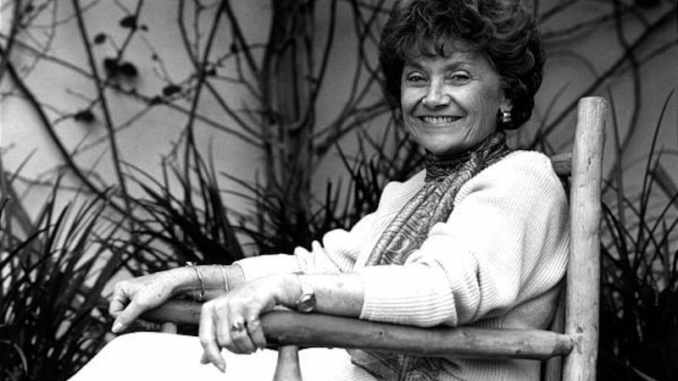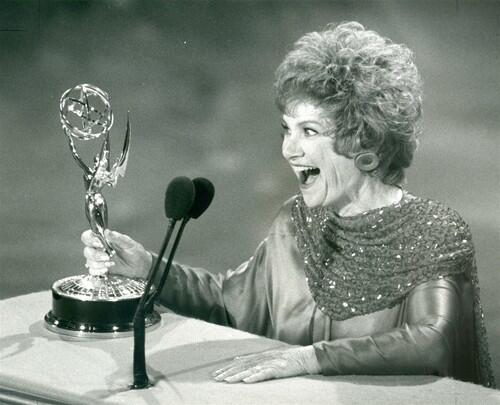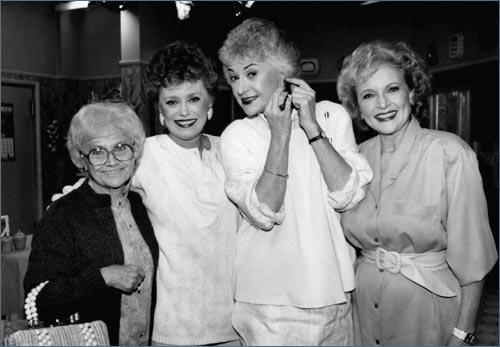
Estelle Getty is best remembered for her iconic portrayal of Sophia Petrillo in the beloved sitcom The Golden Girls. Her biting wit, Brooklyn accent, and signature wicker purse made her one of the most recognizable characters in television history. However, Getty’s career did not end when the Golden Girls wrapped in 1992. In fact, the years that followed saw her taking on new roles, facing personal challenges, and leaving a deeper imprint on pop culture than many realize. This article explores Estelle Getty’s post-Golden Girls career and how she continued to impact Hollywood, fans, and even the LGBTQ+ community.
Contents
The Post-Golden Girls Years of Estelle Getty

After The Golden Girls concluded its successful seven-season run, Estelle Getty seamlessly transitioned into its short-lived spin-off, The Golden Palace (1992–1993). Reprising her role as Sophia Petrillo, she starred alongside Rue McClanahan (Blanche) and Betty White (Rose). Though Bea Arthur (Dorothy) made only occasional appearances, Getty’s performance remained consistent and endearing. Despite the show being canceled after just one season, it allowed Getty to maintain her relevance in prime-time television.
Following The Golden Palace, Estelle Getty expanded her range with guest appearances on other sitcoms. She starred in Empty Nest, a spin-off connected to the Golden Girls universe, again portraying Sophia in cross-over episodes. Her comedic timing and rapport with audiences made her a popular guest star on various television programs throughout the 1990s.
Getty also lent her talents to film during this time. In 1992, she co-starred with Sylvester Stallone in the action-comedy Stop! Or My Mom Will Shoot. Playing the overbearing mother of a tough Los Angeles cop, her comedic abilities were on full display. Although the film was critically panned, Getty’s performance was noted for its charm and humor.
In 1993, she played a memorable role in Stuart Saves His Family and made appearances in TV shows such as Touched by an Angel and Mad About You. Her versatility as an actress proved she could deliver both laughs and heartfelt emotion.
Later Career Highlights and Final Performances

While health issues began to limit her acting in the late 1990s, Estelle Getty remained involved in the industry as long as she could. One of her last major roles came in 2000, when she lent her voice to the animated show Duckman and took part in several Golden Girls retrospectives and television documentaries.
During this time, she also made heartfelt appearances at fan conventions and reunions, further endearing herself to her devoted fan base. Though she had largely retired from acting by the early 2000s, Getty’s influence remained strong, especially among the LGBTQ+ community and younger audiences who discovered The Golden Girls in syndication.
An Advocate Behind the Scenes
Beyond her on-screen work, Estelle Getty was an outspoken advocate for HIV/AIDS awareness during a time when public support was far from mainstream. She frequently volunteered at events, lent her celebrity to fundraising efforts, and supported those suffering from the disease, particularly within the LGBTQ+ community. Her close friendships with co-stars and colleagues in the industry strengthened her commitment to causes she believed in.
In particular, her support of organizations like Project Angel Food and the AIDS Project Los Angeles helped raise both awareness and critical funds during the peak of the AIDS crisis. Her activism, though often quiet and behind the scenes, reflected a deep compassion that mirrored her on-screen persona.
Health Struggles and Quiet Retirement

In the early 2000s, Getty began showing signs of dementia. She was eventually diagnosed with Lewy body dementia, a progressive disease that affects cognitive abilities and memory. Sadly, this diagnosis forced her to step away from acting and public life altogether.
Her retirement was marked by seclusion, but she continued to receive love from fans and friends. Co-stars like Betty White and Rue McClanahan often spoke publicly about her illness, helping raise awareness for Lewy body dementia. Getty’s family and caretakers remained protective of her privacy during her final years, honoring her legacy with dignity and respect.
Estelle Getty passed away on July 22, 2008, just days before her 85th birthday. The outpouring of tributes from fans, celebrities, and media outlets reflected her indelible impact on the world of entertainment.
Lasting Cultural Impact
While Estelle Getty’s career after The Golden Girls may not have matched the visibility of her days as Sophia Petrillo, her contributions during that period were no less meaningful. Her roles in films and TV continued to showcase her comedic talent, while her advocacy work left a lasting imprint on many lives.
Moreover, her portrayal of Sophia Petrillo lived on through reruns, internet memes, and a resurgence of appreciation from younger audiences. Getty’s character became a symbol of resilience, wit, and unapologetic honesty. Even in retirement, Estelle Getty remained a touchstone of comedic brilliance.
Her star on the Hollywood Walk of Fame, awarded in 1992, serves as a reminder of her influence. More than just a funny woman, she became a beacon of empathy, resilience, and authenticity in an industry often criticized for superficiality.
Why Estelle Getty Still Matters

Estelle Getty’s post-Golden Girls career may not have reached the same iconic status as her role as Sophia, but it was a time marked by quiet strength and lasting contributions. She remained active in television and film, supported important social causes, and carried herself with humility even as her fame grew.
In a world of fleeting celebrity, Getty’s sustained popularity speaks volumes. Whether through her sharp one-liners or her advocacy, she offered something enduring: a reminder that true star power isn’t just about roles played but about the heart behind them.
Today, fans still quote her lines, wear merchandise with her likeness, and discover her through streaming services. Estelle Getty has transcended the confines of any single role, becoming an emblem of timeless comedic brilliance and quiet activism.
Conclusion
Estelle Getty’s career after The Golden Girls was more than just a continuation—it was a testament to her versatility, compassion, and enduring appeal. Though her health eventually took her out of the spotlight, her legacy only grew stronger. Through film, television, activism, and a deep connection with fans, Estelle Getty proved that there is life—and impact—after even the most legendary of roles.
As generations continue to discover and celebrate her work, it’s clear that Estelle Getty’s star will never dim. She didn’t just entertain us—she inspired us. And for that, she remains golden.
See more at KpopAll and fanpage Golden Girls, Golden Girls.

Leave a Reply